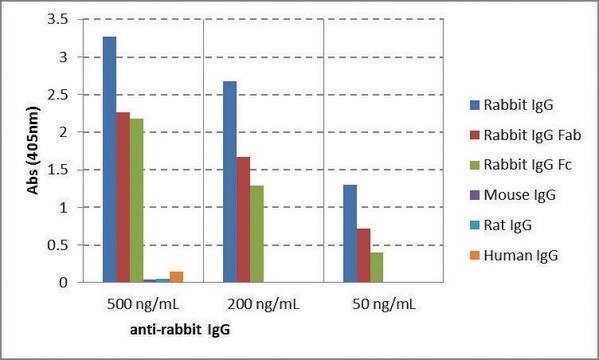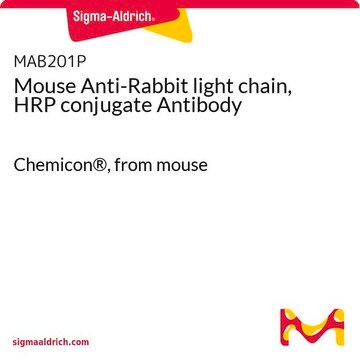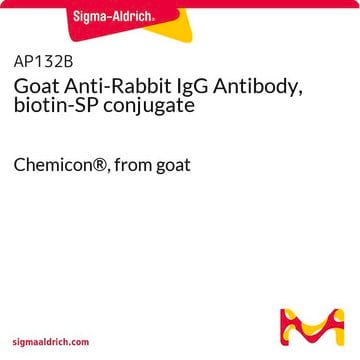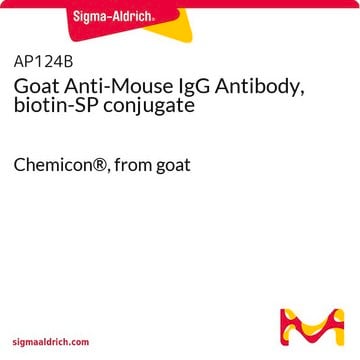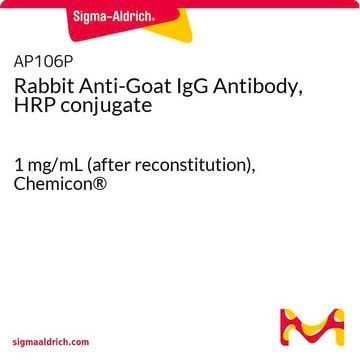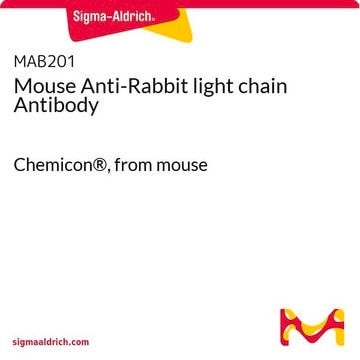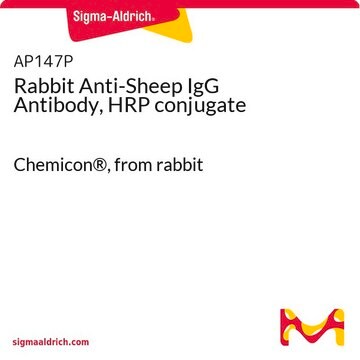MAB201B
Mouse Anti-Rabbit light chain Antibody, biotin conjugate
Chemicon®, from mouse
About This Item
Produits recommandés
Source biologique
mouse
Niveau de qualité
Conjugué
biotin conjugate
Type de produit anticorps
secondary antibodies
Clone
monoclonal
Espèces réactives
rabbit
Fabricant/nom de marque
Chemicon®
Technique(s)
ELISA: suitable
flow cytometry: suitable
immunohistochemistry: suitable
western blot: suitable
Isotype
IgG1κ
Conditions d'expédition
wet ice
Modification post-traductionnelle de la cible
unmodified
Description générale
Spécificité
Application
Immunohistochemistry: 1:500 - 1:5,000 on tissue sections
Flow Cytometry: 1:200 - 1:1,000
Optimal working dilutions must be determined by the end user.
Description de la cible
Forme physique
Stockage et stabilité
Informations légales
Vous ne trouvez pas le bon produit ?
Essayez notre Outil de sélection de produits.
Code de la classe de stockage
12 - Non Combustible Liquids
Classe de danger pour l'eau (WGK)
WGK 2
Point d'éclair (°F)
Not applicable
Point d'éclair (°C)
Not applicable
Certificats d'analyse (COA)
Recherchez un Certificats d'analyse (COA) en saisissant le numéro de lot du produit. Les numéros de lot figurent sur l'étiquette du produit après les mots "Lot" ou "Batch".
Déjà en possession de ce produit ?
Retrouvez la documentation relative aux produits que vous avez récemment achetés dans la Bibliothèque de documents.
Notre équipe de scientifiques dispose d'une expérience dans tous les secteurs de la recherche, notamment en sciences de la vie, science des matériaux, synthèse chimique, chromatographie, analyse et dans de nombreux autres domaines..
Contacter notre Service technique
